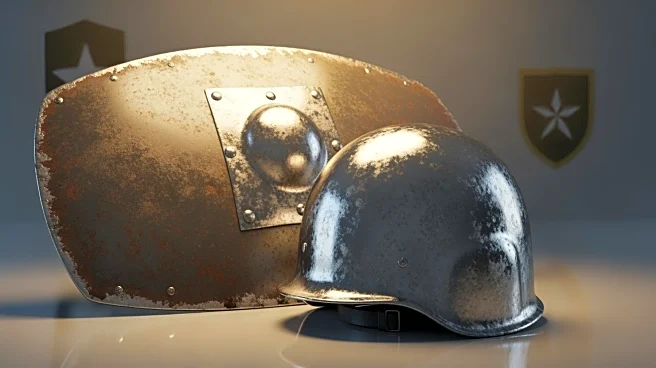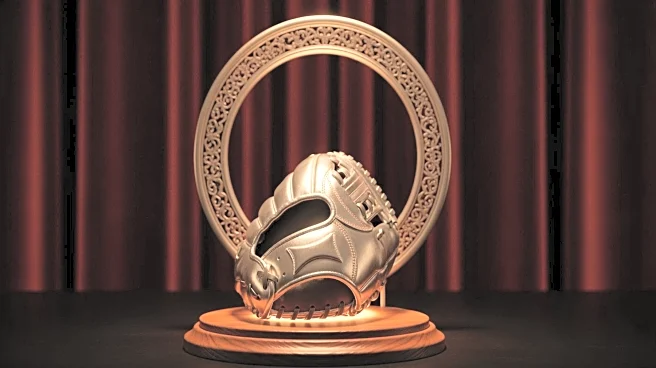What's Happening?
Secretary of Defense Pete Hegseth recently addressed U.S. military leaders at Marine Corps Base Quantico, outlining his vision to reshape military culture by introducing ten new directives aimed at restoring
a 'warrior ethos.' Hegseth criticized what he termed 'woke garbage' and emphasized the need for combativeness, toughness, and dominance. He specifically targeted physical fitness and grooming standards, expressing disdain for 'fat generals' and 'beardos.' Hegseth's approach contrasts sharply with historical military leadership ideals, particularly those of George Washington, who valued composure, prudence, and restraint over physical appearance and bravado.
Why It's Important?
Hegseth's directives could significantly impact military culture, potentially affecting morale and the perception of military leadership. By focusing on physical appearance and a narrow definition of 'warrior ethos,' there is a risk of alienating personnel who do not fit this mold. This approach may also overlook the diverse qualities that contribute to effective leadership, such as strategic thinking and emotional intelligence. The emphasis on traditional masculinity could marginalize women and other groups, potentially affecting recruitment and retention in the military. The historical contrast with George Washington's leadership style highlights a broader debate about the values that should guide military leadership in the modern era.
What's Next?
The implementation of Hegseth's directives will likely prompt reactions from various stakeholders, including military personnel, veterans, and policymakers. There may be discussions about the balance between maintaining discipline and embracing diversity within the military. The directives could also lead to policy reviews or adjustments if they are perceived to negatively impact military effectiveness or cohesion. Observers will be watching to see how these changes affect the military's public image and its ability to adapt to contemporary challenges.
Beyond the Headlines
Hegseth's focus on a 'warrior ethos' raises questions about the ethical and cultural dimensions of military leadership. The emphasis on physical appearance and traditional masculinity may reflect broader societal debates about gender roles and inclusivity. Additionally, the historical comparison with George Washington suggests a potential shift away from values like prudence and restraint, which have traditionally been seen as essential to effective leadership. This development could influence how future military leaders are trained and evaluated, potentially reshaping the military's role in society.









